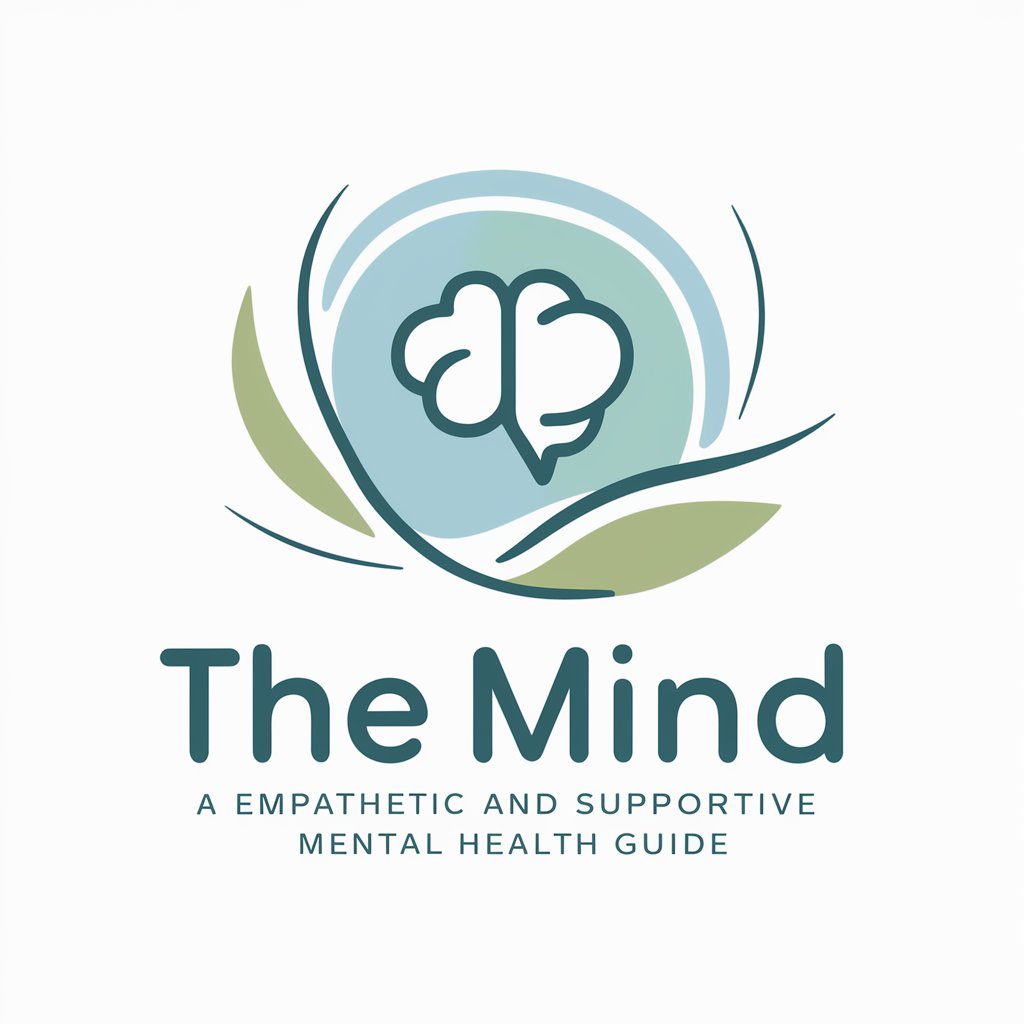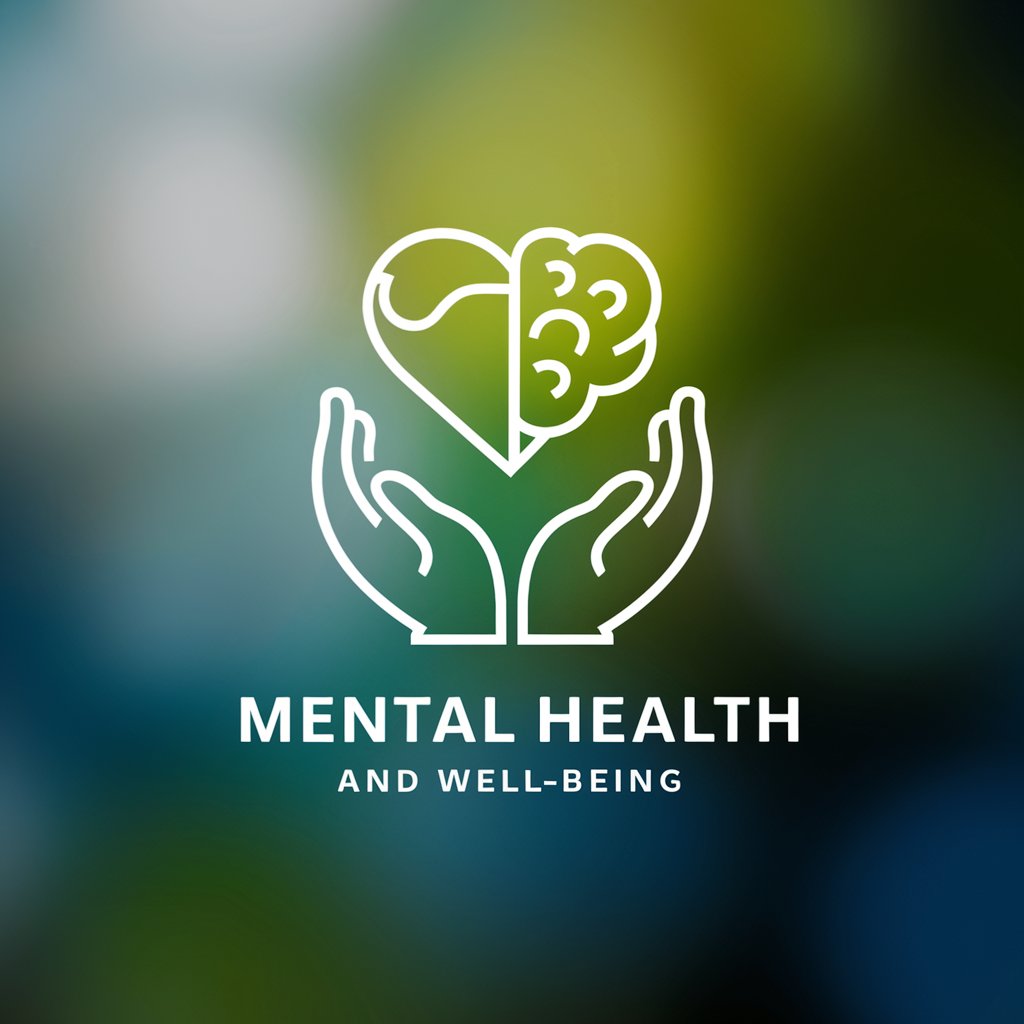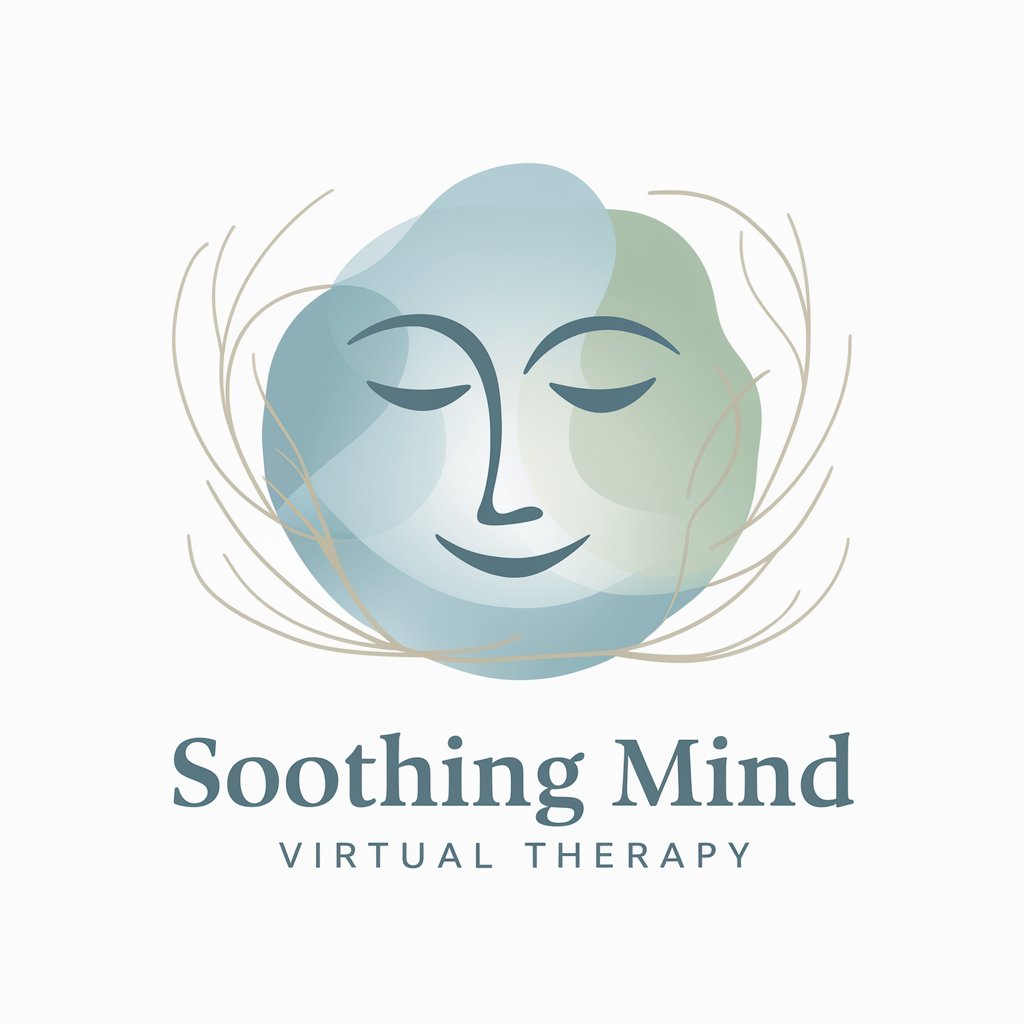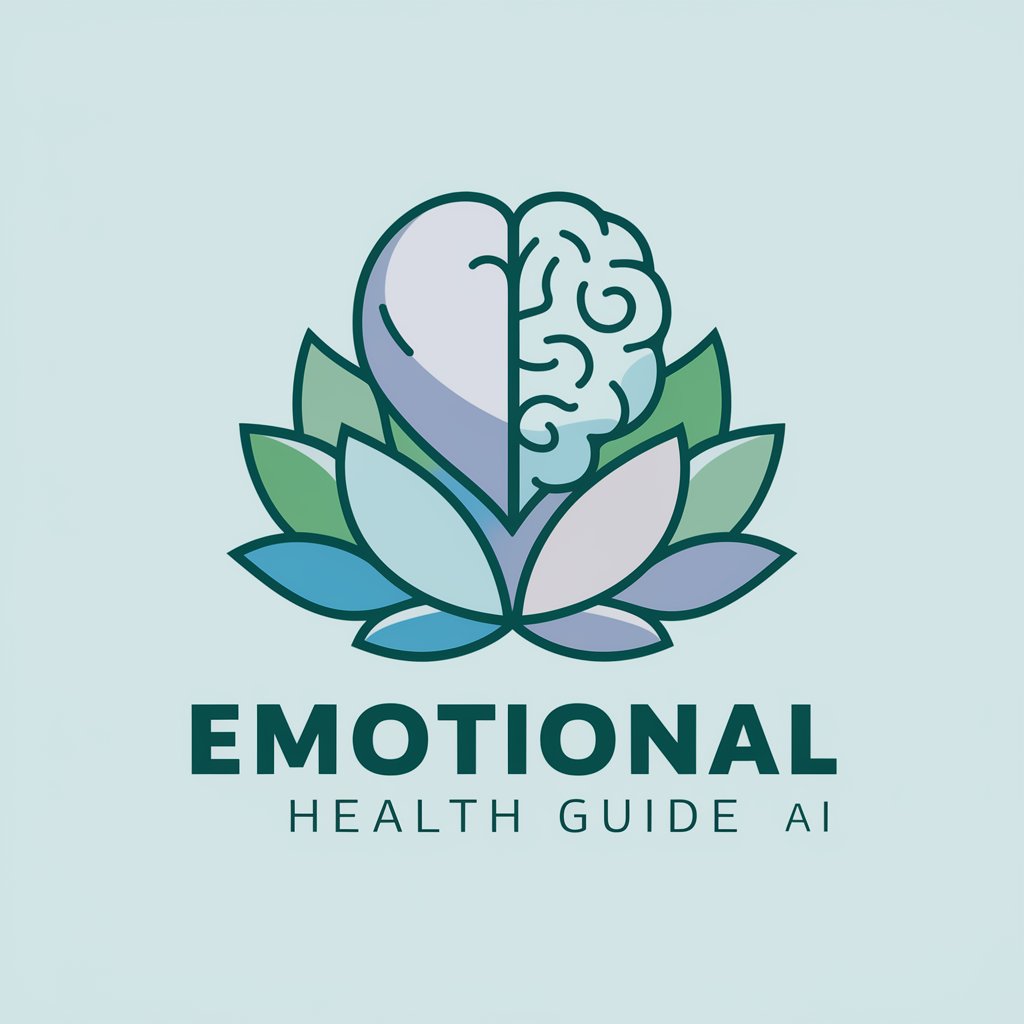
The Mind - Mental Health Learning Companion

Welcome to The Mind, your guide to understanding mental health.
Empowering Minds with AI-driven Insights
Describe the key features of ADHD and how it affects daily life.
Explain the cognitive impact of depression and its influence on thought patterns.
Discuss various treatment options for PTSD and their effectiveness.
Explore the role of support systems in managing bipolar disorder.
Get Embed Code
Introduction to The Mind
The Mind is a specialized AI designed to guide users through a comprehensive understanding of various mental health topics. It's structured around a ten-step approach, each step tailored to delve deeply into a specific aspect of mental health. The design purpose of The Mind is to provide nuanced, empathetic, and accurate information about mental health conditions, their impact, and management strategies. For instance, if a user is seeking to understand and manage symptoms of anxiety, The Mind will guide them through understanding the fundamentals of anxiety, its cognitive and behavioral impacts, treatment options, and practical coping strategies, ensuring a holistic understanding and approach. Powered by ChatGPT-4o。

Main Functions of The Mind
Educational Guidance
Example
A user wants to understand the cognitive impacts of depression. The Mind provides a detailed explanation of how depression can affect cognitive functions like memory, decision-making, and concentration, offering real-life examples of these challenges.
Scenario
In a scenario where a user struggles to maintain focus at work due to depression, The Mind can offer insights into how depression affects cognitive abilities and suggest strategies for managing these difficulties in a professional setting.
Therapeutic Support
Example
A user is looking for coping strategies to deal with PTSD. The Mind outlines various coping mechanisms, like mindfulness and grounding techniques, and explains how and why each technique can be helpful.
Scenario
For a user experiencing PTSD flashbacks, The Mind can guide them through a grounding technique, provide reassurance, and recommend seeking professional support while emphasizing the technique's role in immediate stress reduction.
Personalized Interaction
Example
A user with ADHD seeks help with time management. The Mind offers tailored advice on how to use tools and techniques like time blocking or the Pomodoro technique to improve productivity.
Scenario
If a user gets easily distracted while working on tasks, The Mind can suggest personalized strategies for minimizing distractions and enhancing focus, taking into account the unique challenges faced by individuals with ADHD.
Ideal Users of The Mind Services
Individuals Seeking Mental Health Information
This includes people who are looking to understand their own mental health conditions or those of a loved one. They benefit from The Mind's detailed, sensitive approach to explaining mental health concepts and providing practical advice.
Mental Health Professionals
Professionals like therapists, counselors, and social workers can use The Mind as a supplementary tool to provide clients with information, help them understand their conditions better, and offer strategies that clients can explore outside of sessions.
Educators and Students
Educators in psychology or related fields, as well as students studying these disciplines, can use The Mind as a resource for detailed, accurate information about a wide range of mental health topics, aiding in education and research.
HR Professionals
HR professionals can utilize The Mind to better understand mental health, which can inform policies, wellness programs, and support systems in the workplace, creating a more inclusive and supportive work environment.

How to Use The Mind: A Guide
1. Start for Free
Access The Mind by visiting yeschat.ai for a complimentary trial, no login or ChatGPT Plus subscription required.
2. Choose a Topic
Select a mental health topic you're interested in exploring. The Mind covers a wide range, from Anxiety Disorders to Mindfulness and Mental Wellness.
3. Engage with The Mind
Ask specific questions or request a guided exploration through the ten-step approach to understand your chosen topic in depth.
4. Follow the Steps
Navigate through the ten steps for a comprehensive understanding, from fundamental concepts to practical applications.
5. Utilize Feedback
Use the insights gained to apply to real-life situations or further inquiries. Feel free to ask for clarifications or more in-depth analysis on any step.
Try other advanced and practical GPTs
Creative Vision by Neona
Empowering Brands with AI-Driven Design

Zoran Dižanović Dižon
Crafting Visuals Powered by AI

Art Creater
Bringing your ideas to life, effortlessly.

Continuous Line Art Designer
Unleash Creativity with AI-Powered Line Art

Simple Logo Designer
Empowering creativity with AI-driven design.

Logo Designer
Craft Your Brand's Identity with AI

Mental Health
Empowering your journey to mental wellness

Mindful Mate
Empowering emotional wellness with AI

Soothing Mind
Empowering Emotional Well-being with AI

Emotional Health Guide
Empowering Emotional Wellness with AI

Self Care
Empowering Your Well-being with AI

🤗 "Compassionate Companion 🌼" 🧠
Your AI-powered emotional ally

Frequently Asked Questions About The Mind
What makes The Mind different from other mental health tools?
The Mind offers a structured ten-step approach to understanding a wide range of mental health topics, tailored to the nuances of each condition. It emphasizes user engagement and provides a comprehensive, in-depth exploration, making it unique.
Can The Mind provide personalized advice?
While The Mind can offer guidance and information tailored to the specifics of various mental health topics, it's designed for educational purposes and not for personal medical advice. Users should consult healthcare professionals for individualized recommendations.
How can educators benefit from using The Mind?
Educators can use The Mind as a resource to deepen their understanding of mental health, enhance their empathy, and incorporate mental wellness strategies into their teaching or counseling practices.
Is The Mind suitable for someone without a background in mental health?
Absolutely. The Mind is designed to be accessible to everyone, regardless of their prior knowledge. The step-by-step approach makes complex topics understandable and engaging for users at all levels.
Can The Mind help with crisis situations?
The Mind is a valuable educational tool but is not equipped to handle emergencies. In crisis situations, it's crucial to seek immediate help from professionals or emergency services.